Introduction to the diet of your Mongolian gerbil
In natural habitats such as dry grasslands and deserts, wild gerbils gather a variety of food including seeds of various grasses, leaves and herbs. They are also quite happy when they find locusts, worms and bugs to eat.
You must be wondering what gerbils can eat when kept as pets. These small omnivores require a good, balanced diet that includes specially formulated gerbil food.
A gerbil diet should include protein and fiber to keep their digestion functioning properly, as well as all the essential nutrients and minerals they need for healthy bones, teeth, heart and to support a healthy coat. Gerbils also enjoy small portions of gerbil-safe fruits and vegetables.
What should a gerbil's diet include?
A healthy gerbil diet should consist of the following components:
Nutrient-dense pellets — specifically designed for gerbils to mimic their natural diet — steer clear of "granola-like" mixes, as gerbils may pick out the sugar-rich bits. This can cause painful dental problems and lead to an unbalanced diet. Tasty, good quality forage hay like timothy hay * is ideal for gnawing, along with some untreated softwood like hawthorn, hazelnut, pear, poplar or apple tree to chew on. This helps keep their teeth healthy and prevent overgrowth. An occasional treat of gerbil-safe fresh food, such as a small piece of fruit or vegetable, should be offered, but be aware that too much green food can cause diarrhea. Before feeding your gerbil friends any fresh food, make sure you know what is and isn't safe for them. Gerbils also require a constant supply of fresh drinking water. Choose a bottle with a valveless siphon to make it easier for them to take a refreshing sip. Make sure the spout is placed at the correct height.
What fruits can gerbils eat?
Wondering if gerbils can eat blueberries? Yes you can! Wild gerbils will, of course, eat any fruit they find (although that can be quite rare in the desert!). Therefore, small amounts of fresh fruit are enjoyed as a treat. Note, however, that fruit contains a lot of sugar, so too much of it can lead to obesity.
Along with berries like strawberries, raspberries, and blueberries, animal rights group PDSA advises that the following fruits are safe for gerbils — but only give them a tiny portion:
Apple, pear, peach, melon
Can gerbils eat oranges?
No. NEVER feed your gerbils citrus fruits, rhubarb or grapes as these are poisonous to rodents.
What vegetables can gerbils eat?
When planning a gerbil diet, some fresh vegetables (think small slices or cubes) add some welcome variety. Gerbils like to sit down and hold bits of food in their paws to nibble on.
PDSA advises that the following vegetables and herbs are good for gerbils:
Carrot, broccoli, cabbage, cauliflower, chicory, spinach, sweet pepper, cucumber, watercress, zucchini, fennel, pumpkin, basil, sage, parsley and coriander.
What should gerbils avoid eating?
Wondering what human food gerbils can eat? The answer might surprise you. Aside from safe fresh food, gerbils should NEVER be given human food. Foods to avoid include:
Gerbil Muesli – Granola-based gerbil diets encourage selective eating, with gerbils consuming the starchy/sugar-rich components of the muesli while rejecting the high-fiber pellets. This means they miss out on the nutrition they need. Sweet Treats - Colorful gerbil treats are often high in sugar and bad for your gerbil's teeth and tummy. Nuts and certain seeds - Gerbils do not naturally eat nuts, which are very high in fat, such as sunflower seeds. Pumpkin seeds * are a better choice as an occasional treat. Human Food – Bread, pasta, crackers, and cookies that are high in carbohydrates can cause digestive problems. Chocolate and dairy are particularly dangerous, and citrus fruits can upset her sensitive stomach. Potatoes, tomato leaves, onions and garlic are also poisonous to rodents. Finally, if you are unsure whether something is safe for your gerbils to eat, you'd better avoid it.
How often should you feed a gerbil?
Feed your gerbils once a day. Because these small rodents are diurnal, meaning they are active during the day, the best feeding time is in the morning. Feed only the amount of gerbil food they need each day - about a tablespoon of gerbil pellets each day.
In the wild, gerbils spend many hours a day foraging and digging for food. Rather than simply placing your gerbils' favorite food in a chew-proof ceramic bowl, sprinkling a portion of it will encourage natural foraging behavior. Gerbils are inveterate hoarders - so stay alert and remove any stale bits of food they've been hiding.
Chewing, gnawing, and shredding is a natural behavior of gerbils, so provide a variety of things for them to sink their teeth into, such as cardboard, coconut shells, hay bars, pumice stones, banana leaves, and seaweed toys.
Also note the following:
-
Drinking Water : Make sure your gerbils always have access to fresh, clean water. Bottled water is a great option as it keeps the water clean and allows the gerbils to drink comfortably.
-
Balanced Diet : A healthy diet for gerbils should be balanced and contain a variety of foods, including protein, fiber, vegetables, and the occasional fruit treat. Be careful not to feed too much of one thing and avoid foods that may be harmful to gerbils.
-
Feeding time : Try to feed your gerbils at a fixed time. They are diurnal animals and their feeding time should therefore be in the morning.
-
Dental Care : Gerbils have teeth that are constantly growing, and they need things to chew on to keep them healthy. This includes hard vegetables, suitable types of wood and special chew toys.
-
Fresh Food : When feeding fresh fruits and vegetables, it's important to make sure these foods are clean and free of pesticides or other chemicals.
-
Beware of Dangerous Foods : Some foods are toxic to gerbils and should be avoided. These include citrus fruits, rhubarb, grapes, garlic, onions, and certain types of nuts and seeds. It's important to always make sure the food you give your gerbils is safe for them to eat.
Reminder: The above information is a guide and may vary depending on the individual gerbil. Anytime you are unsure whether a particular food is safe for your gerbil, it is best to consult a veterinarian.
With proper care and nutrition, your gerbils can live long, healthy, and happy lives. They are fascinating, active animals that can bring a lot of joy.
Finally, we would like to point out that we have a wonderful selection of gerbil merchandise in our shop. Please stop by and show your love for these adorable little creatures. Whether you're looking for the perfect gift for a guinea pig lover or looking to add to your own collection, we're sure to have something for you! Thank you for reading and see you next time!
*Please note that some of the links in this article are affiliate links. This means we get a small commission if you make a purchase through these links. This helps us continue to operate our blog and platform and deliver quality content.

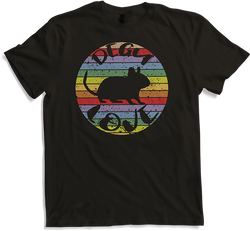



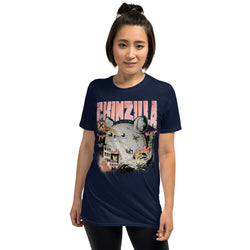

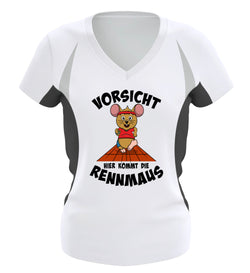
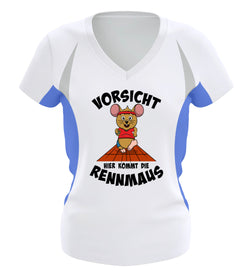
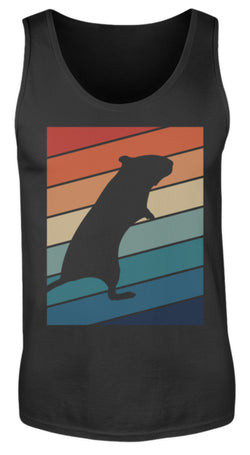
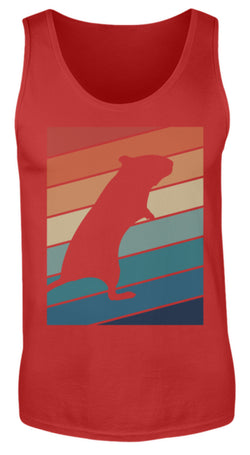




Leave a comment
Please note, comments need to be approved before they are published.